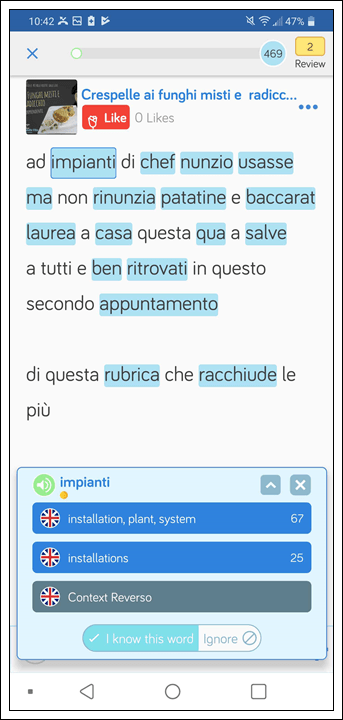How Long Does it Take to Learn Italian
Learning a language can be a tiring, even exhausting experience. Even when you’re equipped with all your possible enthusiasm, you are still going to come across a few setbacks that will tempt you to drop your journey altogether. But you shouldn’t worry about it, as it’s perfectly normal!
Just like any other language, Italian is full of grammar rules, pronouns, verbs, accordances, and even more filled with exceptions.
My name is Giulia, I am a translator and Italian teacher and my native language is Italian. I studied English growing up and now I live in the UK, where I teach Italian to lots of different students, so I can see all the different stages of the same learning process I went through as an English learner.
I based this analysis both on my personal experience with English learning and on some of my students’ ones.
There are a few stages you need to go through, and most times you need to start from the absolute basics. It also depends on which languages you already know. If you are a native English speaker, you’ll realise how different pronunciation and grammar are. If you already know another Romance language (such as French or Spanish), learning Italian might be a bit easier for you.
I would recommend to study at least 30 minutes a day, up to an hour. Being regular is a key factor and it helps you seeing the daily improvements without struggling with too much information, whilst juggling work and personal life.
This time frame is based on a daily learning schedule of 30 minutes per day, with additional classroom time (2 hours per week when possible) to practise conversation and writing.
As said, the length and recurrence of your practice (10 minutes a day or 1 hour every two) will affect the time in which you learn the language, but it is fundamental to be regular and practice as often as possible.
The different stages
Elementary proficiency
The person is able to satisfy routine travel needs and minimum courtesy requirements.
This is the mocst important stage as you are building the basis to further develop your language skills. Start by understanding how the alphabet and pronunciation works, and listen to as much material as possible. If you are practising 30 minutes a day to to reach this stage, it should take you up 3 to 6 months.
Limited working proficiency
The person is able to satisfy routine social demands and limited work requirements.
Things are starting to get harder and you will come across many more grammar rules. Usually it can take up to two years to get to a confident stage where you can start working in an all Italian environment. However, there are cases where students have obtained limited working proficiency within a year. These students are highly motivated to learn and practice around an hour a day.
Minimum professional proficiency
The person can speak the language with sufficient structural accuracy and vocabulary to participate effectively in most formal and informal conversations on practical, social, and professional topics.
Usually you arrive at this point after three years of constant practice, where you start researching topics of your interest and you master most of the grammar rules.
Full professional proficiency
The person uses the language fluently and accurately on all levels normally pertinent to professional needs.
If you practised constantly, you should be at this level after four years. Maybe your pronunciation won’t be perfect but you’ll be able to master most conversations and express yourself and your ideas with confidence.
Native or bilingual proficiency
The person has speaking proficiency equivalent to that of an educated native speaker.
After 4 years, this is the part where you will need to keep working on daily. Usually it takes up to eight years to become fully proficient on a native level, considering also the pronunciation and all the different accents we have in Italian. You will probably need to spend some time in Italy and practise the language full immersed in the cultural and linguistic context.
It’s important to balance your time between the four major language skills:
Listening
Speaking
Reading
Writing
Try to balance them as much as possible: practise them on a rotational basis (one day for listening, one day for speaking etc.) and then try to combine them. Going back I would probably focus on practising conversation more: it is far easier now with Internet, using resources such forums to get in touch with native speakers and practice both writing and speaking while having fun. Don’t underestimate the importance of conversation for fluency.
Using LingQ to speed up your learning process
The best way to learn Italian is by using content you love. LingQ can turn your favorite YouTube videos, blogs, news articles, and much more into interactive lessons to help you learn faster.
To import your own content, check out this post that will teach you how you can import YouTube videos into LingQ. You can also import blog posts, music audio, and much more. For example, below is a lesson that using content from Italian YouTubers.

Using LingQ, you can save words, look them up, and listen to the audio (if it is included) on your phone or on your desktop. Give it a go and see how much faster you’ll be able to learn Italian.
Not only that, LingQ comes with thousands of hours of pre-loaded content too. If you’re a beginner, you’ll be able to find a lot of great courses in LingQ’s lesson library that’s perfect for you.
Try it for free today, LingQ’s language learning apps are available for both Android and iOS. Good luck!
Good luck!
Enjoyed this post? Check out polyglot and LingQ cofounder Steve Kaufmann’s YouTube video on how he learned Italian!
***
Giulia was born in Italy and currently lives in Scotland. She works as an English and French translator and as a teacher.


